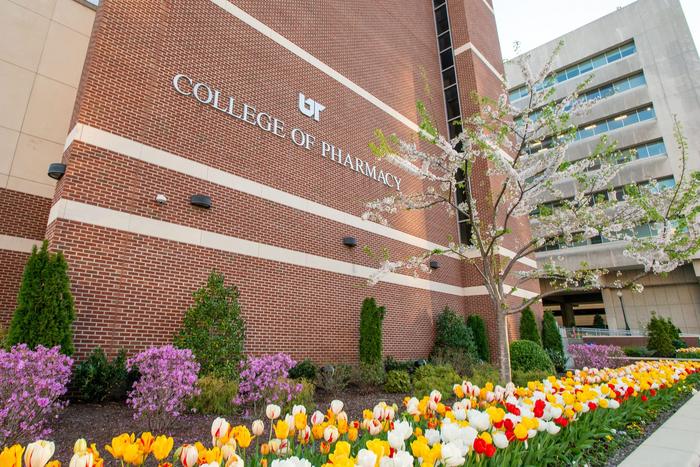The College of Pharmacy at the University of Tennessee Health Science Center is now ranked No. 6 in annual research funding from the National Institutes of Health, according to a new listing published by the American Association of Colleges of Pharmacy of its approximately 140 member institutions.

Credit: UTHSC
The College of Pharmacy at the University of Tennessee Health Science Center is now ranked No. 6 in annual research funding from the National Institutes of Health, according to a new listing published by the American Association of Colleges of Pharmacy of its approximately 140 member institutions.
“The ranking of No. 6 in NIH funding for federal fiscal year 2022 is external validation for the UTHSC College of Pharmacy’s standing as one of the leading institutions in research among the 142 U.S. pharmacy schools,” said Bernd Meibohm, PhD, FCP, FAAPS, associate dean for Graduate Programs and Research. “Together with the ranking of the college as a top 20 Doctor of Pharmacy program by U.S. News & World Report, it underlines the college’s role as one of the top pharmacy schools in the nation.”
The college received a total of more than $19.2 million in NIH funding in fiscal year 2022, causing it to jump six places from No. 12 the year before. “This record-high funding for our college was achieved through the outstanding productivity of our faculty, who are conducting cutting-edge research in the pharmaceutical sciences,” said Reginald F. Frye, PharmD, PhD, dean and professor in the UTHSC College of Pharmacy.
In 2010, the college had roughly $3 million in NIH grant funding, and the number has steadily climbed each year since then. Dr. Meibohm said the continual rise is due to a joint effort of the College of Pharmacy’s entire faculty, including the researchers who attracted the NIH grants and those who supported them by taking on more educational activities to free up time for their research-focused colleagues.
“The rise in the College’s rankings was accomplished by a long-term commitment and investment to create and foster a culture of scholarship and collaborative, team-based research, to communicate clear expectations for research and scholarship to all faculty, to establish an array of research incentives and support programs, and to complement these efforts by strategic recruitment of new NIH-funded investigators,” Dr. Meibohm said.
NIH funding is highly competitive, and a high ranking is widely regarded as a benchmark for scientific rigor and excellence in research. Research in the college includes areas such as preclinical and clinical drug discovery and development, drug utilization, outcome research, and clinical research targeted at refinement of applied pharmacotherapy.




